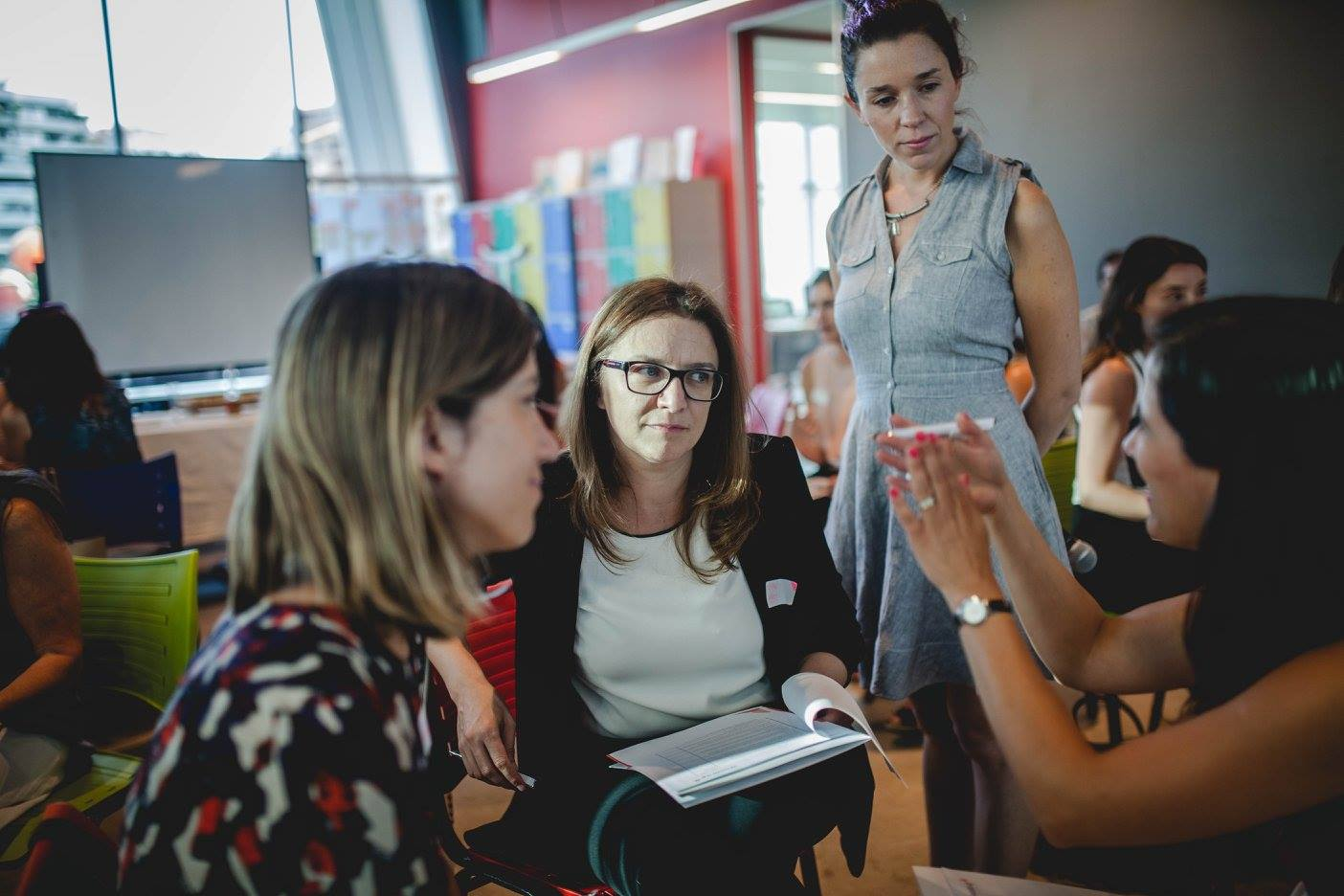
Women's Day: 99.5 Years Remaining
How to Accelerate the Countdown Toward Gender Equality
For women and girls to develop their full potential, there must be a change of mentality and concrete programs that support their initiatives.
By Janet Rivera-Hernández, Vice President of Communication at Mastercard for Latin America and the Caribbean
According to the 2020 Global Gender Gap report published by Women Economic Forum, there is an average of 99.5 years still remaining to close the gender gap in the world. Given the outlook, we must all take determined and urgent action. To continue to ignore women's talent and the contribution they have made to global prosperity is simply unacceptable. There is simply no reason for it.
Although it sometimes seems that the world was designed with only half of its inhabitants in mind, diversity and inclusion contain the key to future development, unanimously. Recent studies with proposals on how to recover economically from the Covid crisis are saying precisely this, but it is also evident in the mentality of the Millennials, for whom gender equality is obvious beyond a doubt.
According to the calculations of McKinsey, Latin America could increase 14% of its GDP in five years by just incorporating women into the workforce. That means $2 billion of extra revenue for a region whose growth is stagnating when compared to that of Asia and Europe—not because of lack of investments, but because its low levels of productivity and human capital.
But behind the numbers there are people, and beyond the objectives there is a lot to do. To start, we must diversify the opportunities to give women equal access to equal possibilities. The programs designed by Mastercard, and implemented through strategic alliances with companies, organizations, and universities, were designed to support women in their jobs through training or in their role as entrepreneurs through mentoring.
At Mastercard, we’re tackling this problem head on with a variety of programs including,
- The World Economic Forum states that, in order to achieve gender equality, it is necessary that STEM (Science, Technology, Engineering and Mathematics) programs be created.
Although women in Latin America have increased their educational levels in recent years, some biases still remain. For example, in their choice of profession, women are more inclined to choose careers related to education, creativity or services, while men tend to dominate in the data sciences and technology fields. In order to train women in the skills of the future, Mastercard developed the Girls4Tech program, which is aimed at girls who will be the women of the future, and trains them in algorithms, fraud detection, data encryption and analysis, as well as in other technological skills that will be an indispensable requirement for employment in the coming years.
- According to the World Bank, women own 50% of small, medium and large companies in the region, but the vast majority of them find it difficult to develop their businesses beyond that of a micro-company.
LEADS Mujer is an association between Mastercard and the INCAE Business School of Costa Rica created this program to strengthen the business skills of Central American entrepreneurs and help them break their own glass ceilings. LEADS Mujer (Leadership, Entrepreneurship, Advance, Development and Sustainability) gives them the opportunity to grow their businesses through specific training: for example, it shows them how to increase their production capacity, effectively market their products, or monitor financial indicators to make better business decisions.
- Between 30 and 40% of women in Latin America are committed to some type of an entrepreneurship.
In conjunction with INCAE Business School and the IDB, Mastercard developed a Virtual Accelerator to expand knowledge and strengthen the business skills of Latin American women entrepreneurs. The program is specifically aimed at helping them innovate in their companies, strengthen their operations and achieve sustained growth. It has a Bootcamp module for business entrepreneurs, so they can go deeper into fundamental areas such as accounting and financial statements, and it also has a Toolkit for Innovative Businesswomen, which focuses on the specific topics and tools they need to grow in a digital context, including sales, innovation, e-commerce and digital marketing.

- In Peru, 42% of the official entrepreneur total is comprised of women, but they obtain one-third of the financial credit that their male counterparts do.
Just over a quarter of the total number of Peruvian Mypes are led by women, and female participation is greater than that of men: 76% of women work in smaller companies, compared to 70% of men. Mastercard partnered with CARE to implement a program that will provide provide Peruvian businesswomen with access to financing, technology and the network that will allow them to enhance their entrepreneurial capacity.
- Before the pandemic, Latin America and the Caribbean were not considered to be a avant-garde regions, technologically speaking, but Covid-19 accelerated the digitization of the region.
In its 2019 World Competitiveness Report, the World Economic Forum classified Latin America and the Caribbean as being far behind other regions in its indicator for the adoption of information and communication technologies. The region obtained a score of 50.9 out of 100, above sub-Saharan Africa (34.3) and South Asia (35.1), but behind the Middle East and North Africa (57.6) and East Asia and the Pacific (70.3 ). DigitAll is a regional project for Colombia, Mexico and Peru that will implement SME digitization over the next two years. The objective is to help overcome the impact rendered by the pandemic by incorporating digital tools into their business management, which will allow them to increase their productivity. Through alliances with various associations, financial institutions and FINTECHS, DigitAll will help them improve their financial security through access to and the use of digital financial services as well as the adoption of good practices.
Recovering from the economic crisis left by the Covid-19 pandemic will require a collective effort. Adding female strength to this effort is not just something that needs to be done, it is also the direct path to rebuilding a more inclusive and diverse world. Those who first recognize the productive potential that women have will be the first to reap the rewards. A world that works better for women is a world in which there are greater possibilities for everyone.
